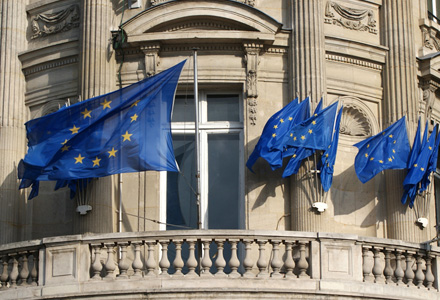FEE 'zeer verontrust' over voorstellen Barnier
"FEE is deeply concerned by measures that will reduce audit quality", zo stelt de Europese koepel van beroepsorganisaties van accountants in een eerste reactie op de voorstellen van eurocommissaris Barnier voor hervorming van de Europese auditmarkt.
Persbericht van de FEE:
FEE initial views on European Commission Proposals on audit policy
FEE supports proportionate regulation aimed at enhancing audit quality and audit services supply but does not believe that overly prescriptive regulation and curtailing the profession's capacity to provide services is the way forward
Brussels, 30 November 2011 - FEE (Fédération des Experts-comptables Européens - Federation of European Accountants) notes that the Proposals released today by the European Commission represent a complex and detailed set of provisions that will require in-depth analysis and debate.
Building on the breadth and diversity of its constituencies (accountancy bodies, small and larger accountancy firms, professional accountants in business and in the public sector), FEE takes an all-inclusive and forward looking perspective on these proposals that we consider from a public interest perspective as well as the collective interest of the entire profession. The global implications of such legislation would also need to be carefully analysed.
From that perspective, at this early stage, FEE welcomes measures aimed at continuing modernising the current audit model and advancing audit policy, e.g.:
- Applying ISAs, which are high-quality proportional international standards on auditing, to all audits in Europe - an objective that FEE has long promoted
- Strengthening the role of audit committees
- Banning contractual clauses limiting entities choice of auditors
- Creating a single market for audit services
- Enhancing the auditor's reports (external and internal), provided that it remains practicable and useful
- Improving the coordination of audit oversight on European level.
FEE is deeply concerned by measures that will reduce audit quality. Imposing such a short period (6 years) for mandatory rotation of audit firms will be counterproductive; it will severely restrict the auditors' knowledge of the entity being audited and reduce the value of the audit, increasing risks and disruptions, perhaps even increasing concentration as limited experience seems to show.
There is excessive focus on measures aimed at re-shaping the audit market of large businesses (public interest entities) while some fundamental elements may go unnoticed: next to the much commented proposed Regulation, the proposed Directive excludes professional accountancy bodies who have underpinned the continued development of the profession, in particular small and medium sized practices, from any other activity regulating its members other than the registration and approval of auditors. This paradigm shift transforms what is today a profession into a regulated industry, doing away with the benefits of being a member of a professional institute.
The proposals relating to the creation of audit-only firms, as well as the overly restrictive rules on limiting non-audit services, will severely limit the ability of the auditor to provide services that rely on the depth and breadth of expertise that stakeholders demand, especially in complex businesses. The profession recognises the need to apply strict ethical and independence rules both in the performance of the audit as well as in the performance of other services. The limitation of such services for reasons other than to secure independence does not serve the public interest, especially at a time where growth, innovation and job creation should be fostered.
FEE trusts that the democratic legislative process that will now start within the European Parliament and EU Member States will provide an opportunity to rebalance the Commission proposals so that the adopted legislation promotes the supply of high quality audit services, facilitates the development of a vibrant audit market and supports an independent and sustainable audit profession.
Gerelateerd

Big four en audit only
Een hogere auditkwaliteit, meer onafhankelijkheid en meer concurrentie. Dat moesten de uitkomsten zijn van de hervormingen die Eurocommissaris Michel Barnier – nu...
Slag in de rondte
Helpt verplichte kantoorroulatie de kwaliteit van de wettelijke controle wel vooruit? De stoelendans zou de onafhankelijkheid en de frisse blik van de controlerend...

Rapport brengt Europese auditmarkt in beeld
De Europese Unie telt ruim 250 duizend externe accountants, ruim 32 duizend accountantsorganisaties en 1.742 oob-accountantsorganisaties. De totale omzet van oob-accountantsorganisaties...
Aanpassing BW2 teruggedraaid in voordeel van accountants zonder AFM-vergunning
Dankzij de inzet van de NBA is een voorgestelde aanpassing van het BW2 teruggedraaid. Tijdens de recente behandeling van de 'Implementatiewet wijzigingsrichtlijn...

Implementatiewet EU-regelgeving voor accountants aangenomen
De Tweede Kamer heeft op 28 juni de 'Implementatiewet wijzigingsrichtlijn en verordening wettelijke controles jaarrekeningen' aangenomen. Het gaat om de implementatie...
